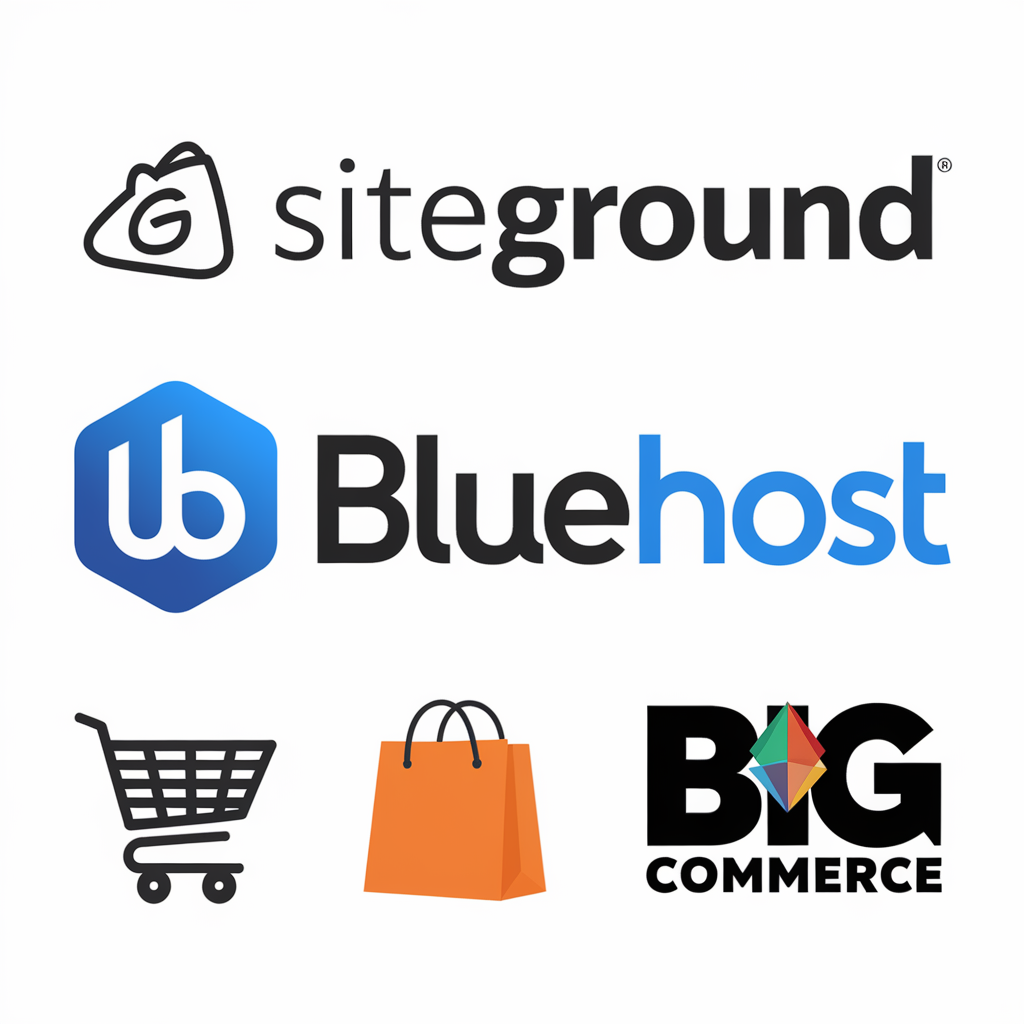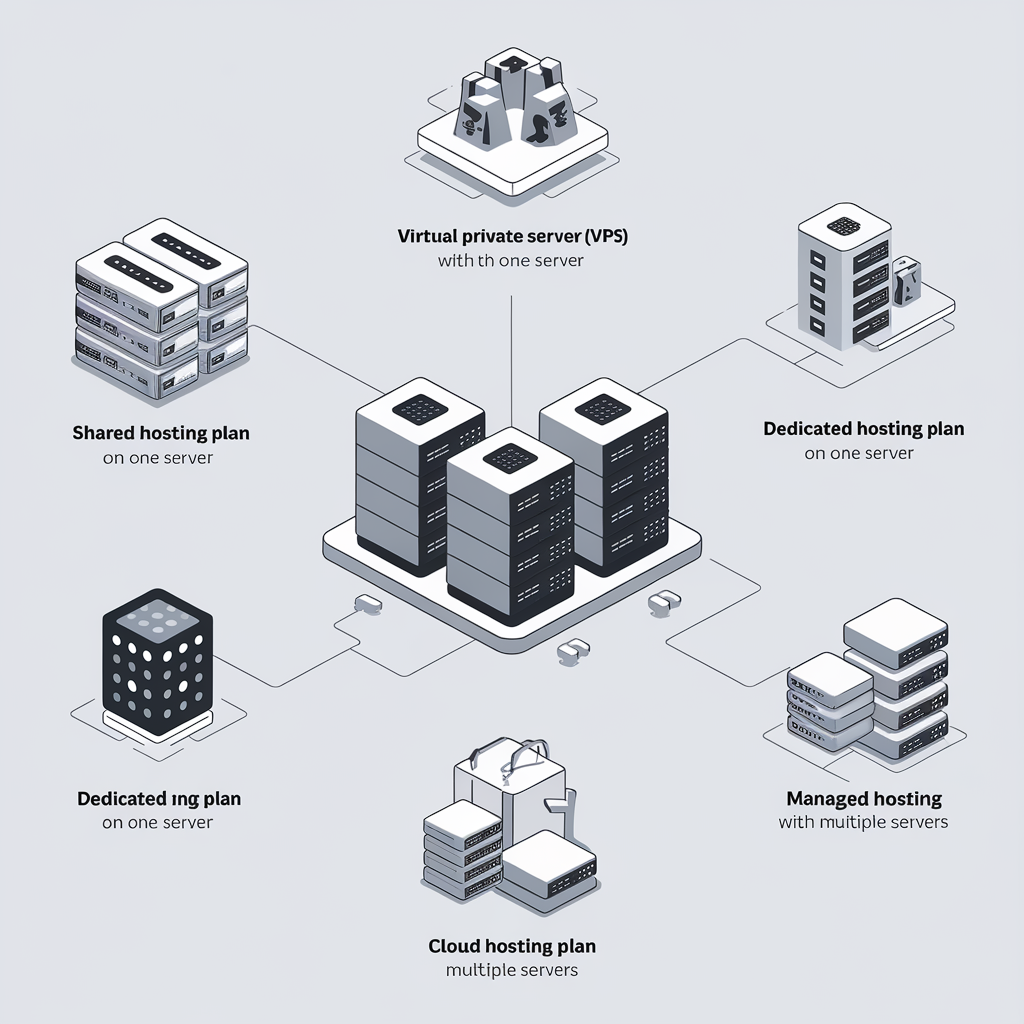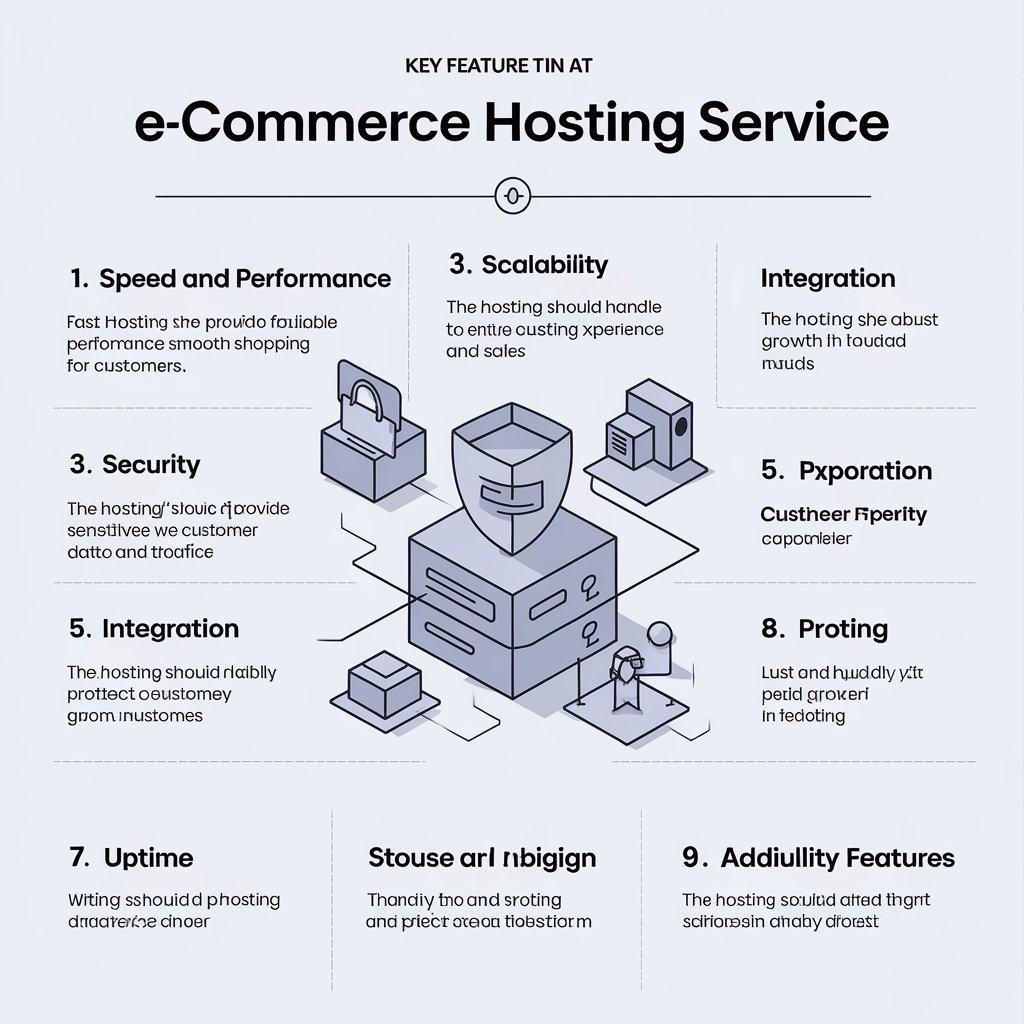In this fast-paced world of online retail, having a reliable and high-performing eCommerce website is crucial for success any business to succeed. A hosting provider plays a significant role in ensuring your website is fast, secure, and always available so that customers can have access to what your site has in stock. With so many hosting options available, choosing the best hosting for your eCommerce website is the best thing to move your business forward.
In this comprehensive guide, I will explain to you the key factors to consider when selecting hosting for an eCommerce website, review the best hosting providers for online stores, and provide tips to optimize your hosting for maximum performance and security.
Choosing the Right Hosting for an eCommerce is Critical
eCommerce websites have unique requirements compared to other types of websites, here’s why choosing the right hosting is essential;

#1. Performance: Slow-loading websites can lead to higher bounce rates and loss of sales. A fast and reliable hosting provider ensures your website delivers a seamless shopping experience for potential and existing customers.
#2. Security: eCommerce websites handle sensitive customer data, such as payment information hence a hosting provider must protect your site from cyber threats and ensure compliance with regulations like PCI DSS.
#3. Uptime: Downtime can result in lost revenue and damage to your brand’s reputation, so a hosting provider with a strong uptime guarantee ensures your site is always accessible.
#4. Scalability: As your online store grows, you’ll need a hosting provider that can scale with your business and handle increased traffic and sales over time.
#5. Support: Reliable customer support is crucial for resolving technical issues quickly and minimizing disruptions to your business.
Read Also: Best Shared Hosting vs VPS Hosting.
Key Features to Look for in eCommerce Hosting
When selecting hosting for your eCommerce website, here are the features to consider:
#1. Performance and Speed
- Look for hosting providers that use SSD storage, CDN (Content Delivery Network), and caching to ensure fast loading times for general user experience.
- A hosting provider with optimized servers for eCommerce platforms like WooCommerce, Magento, or Shopify is a plus.
#2. Security
- Ensure the hosting provider offers SSL certificates, firewalls, malware scanning, and DDoS protection.
- Look for PCI DSS compliance if you’re handling credit card payments directly on your site.
#3. Uptime Guarantee
- Choose a hosting provider with a 99.9% or higher uptime guarantee for your website.
#4. Scalability
- Your hosting provider should offer scalable plans that allow you to upgrade resources as your business grows.
#5. Customer Support
- Select a hosting provider with 24/7 customer support via multiple channels (phone, chat, email) this is essential for resolving issues quickly.
#6. eCommerce-Specific Features
- Look for hosting providers that offer one-click installations for eCommerce platforms, shopping cart software, and payment gateway integrations.
Best Hosting Providers for eCommerce Websites
Here are some of the best hosting providers for eCommerce websites, each offering unique features and benefits

#1. SiteGround
- It is best for small to medium-sized eCommerce websites.
- Features a free SSL, daily backups, free CDN, and optimized hosting for WooCommerce.
- It uses SSD storage and a custom caching system for fast loading times on your website
- It offers advanced security features like a web application firewall (WAF) and AI-based anti-bot system.
- It offers 24/7 customer support with a reputation for excellent service.
- Its pricing starts at $3.99/month (introductory price).
#2. Bluehost
- It is the best choice for beginners and small eCommerce websites.
- Features free SSL, one-click WordPress and WooCommerce installation, and a free domain for the first year to users.
- It is reliable for performance with SSD storage and a custom caching system for its customers
- It offers basic security features like SSL and spam protection.
- Support 24/7 customer support via phone, chat, and email.
- Their Pricing starts at $2.95/month (introductory price).
#3. HostGator
- Best for small to medium-sized eCommerce websites.
- It features free SSL, unlimited bandwidth, and one-click installations for popular eCommerce platforms.
- The performance uses SSD storage and offers a 99.9% uptime guarantee.
- It provides basic security features like SSL and DDoS protection.
- Support 24/7 customer support via phone, chat, and email
- Its pricing starts at $2.75/month (introductory price).
#4. A2 Hosting
- It is best for high-performance eCommerce websites.
- It has turbo servers for faster performance, free SSL, and one-click installations for eCommerce platforms.
- The performance uses SSD storage and offers a 99.9% uptime guarantee.
- It offers advanced security features like a dual firewall and HackScan protection.
- Support 24/7 customer support via phone, chat, and email.
- Pricing starts at $2.99/month (introductory price).
#5. Liquid Web
- It is an ideal choice for large eCommerce websites and enterprises.
- It comes with fully managed hosting, dedicated resources, and optimized hosting for Magento and WooCommerce
- It offers high-performance servers with a 100% uptime guarantee.
- It offers advanced security features like DDoS protection and server hardening.
- It offers 24/7 customer support with a reputation for fast and reliable service.
- Pricing starts at $59/month.
#6. InMotion Hosting
- It is best for growing eCommerce websites.
- It offers free SSL, SSD storage, and optimized hosting for WooCommerce and PrestaShop.
- It offers a reliable performance with a 99.9% uptime guarantee.
- Security provides advanced security features like free SSL and DDoS protection.
- It offers 24/7 customer support via phone, chat, and email.
- Pricing starts at $2.49/month (introductory price).
Types of Hosting for eCommerce Websites
The type of hosting provider you should choose should depend on the size and needs of your eCommerce website.

Below are the most common types of hosting for online stores:
#1. Shared Hosting
- Best for small eCommerce websites with low to moderate traffic.
- Pros: Affordable, easy to use, and suitable for beginners.
- Cons: Limited resources and performance may be affected by other websites on the same server.
#2. VPS Hosting
- An ideal choice for Medium-sized eCommerce websites with moderate traffic.
- Pros: dedicated resources, better performance, and scalability.
- Cons: More expensive than shared hosting and requires some technical expertise.
#3. Dedicated Hosting
- It is best for large eCommerce websites with high traffic and resource demands.
- Pros: it offers full control over server resources, high performance, and enhanced security.
- Cons: Expensive and requires advanced technical knowledge.
#4. Cloud Hosting
- It is best for growing eCommerce websites that need scalability and reliability.
- Pros: Scalable resources, high uptime, and pay-as-you-go pricing.
- Cons: It can be more expensive than traditional hosting.
#5. Managed WordPress Hosting
- It is best for eCommerce websites built on WordPress and WooCommerce.
- Pros: Optimized for WordPress, automatic updates, and expert support.
- Cons: More expensive than standard hosting.
Read Also: Best Hosting with Free SSL: Secure & Affordable Web Hosting Solutions
Tips for Optimizing Your eCommerce Hosting
To ensure your eCommerce website performs at its best, follow these optimization tips:

1. Select a hosting plan that matches your website’s traffic and resource requirements, start with shared hosting for small stores, and upgrade to VPS or dedicated hosting as your business grows.
2. Use a CDN Content Delivery Network (CDN) that distributes your website’s content across multiple servers worldwide, reducing load times for visitors in different regions.
3. Enable caching to store static versions of your website’s pages, reducing server load and improving load times for returning visitors experience.
4. Optimize your website with compressed and resized images to reduce file sizes without compromising quality.
5. Implement Security Measures using SSL certificates, firewalls, and malware scanning to protect your website and customer data and update your eCommerce platform and plugins from time to time to reduce patch security vulnerabilities.
6. Monitor Performance using tools like Google Analytics and hosting provider dashboards to monitor your website’s performance and identify areas for improvement.
7. Back up your website regularly back up your website to protect against data loss due to cyber attacks, server failures, or human error.
Summary
Choosing the best hosting for your eCommerce website is the best decision that impacts your site’s performance, security, and scalability whether you’re running a small online store or a large enterprise, there’s a hosting provider and plan that meets your ideas. SiteGround and Bluehost are excellent choices for small to medium-sized eCommerce websites, offering a balance of affordability and performance. Also, A2 Hosting and InMotion Hosting are ideal for growing eCommerce websites that help you meet the need for scalability and reliability; Liquid Web is the best option for large eCommerce websites and enterprises that require high-performance hosting with dedicated resources. So before you start building a website consider its requirements and follow the optimization tips outlined in this guide, to ensure your eCommerce website delivers a seamless shopping experience and drives sales for your business accordingly.

